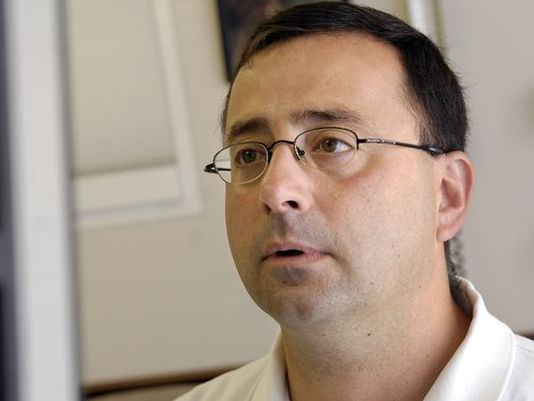 Available from Amazon in hardcover, Kindle version, and audiobook.
Available from Amazon in hardcover, Kindle version, and audiobook.
Or from your local library.
The specifics of what he did… Horrendous. Enraging. It’s all laid out in the book. The callous disregard for the well-being of the very athletes he was famous for treating. The brashness to violate girls right there in the exam room with their mothers a few feet away. The manipulation of their minds to believe he was doing nothing wrong, that they were twisted if they said something about it. The sheer numbers of girls and women he assaulted.
But those things were already in the news. We all heard about it. If you’re reading Rachael Denhollander’s book, chances are you know the details already. Maybe you even watched in agony as over two hundred women addressed him in court.
What Is a Girl Worth? stands out, beyond the shocking and hard-to-read details, for the absolute frankness with which the author tells the story. She is matter-of-fact from the opening scene, when she weighs the chance to corroborate a story on Nassar in the IndyStar. If I do this… she knows the cataclysmic change and scrutiny that will come down on her life and her family if she speaks out… but if I don’t do this… she can avoid all that by saying nothing… she thinks it through, assesses her values, considers her options. She’s methodical, she’s reasoned. And she hits “send.”
Denhollander weaves the tale from her childhood, inspired by the Olympics and the grace and the glory of those girls on TV. She’s not afraid to admit that she didn’t excel at the sport… but stayed with it because she loved it. And she keeps a dispassionate voice all the way through her first abuse at the hands of Nassar. Like every other time he penetrated her, Mom sat right there chatting with the doc while he abused her daughter in front of her eyes.
The aftermath of her abuse is ten-plus years filled with fear, distrust, and anxiety around men. And it leads to more straightforward descriptions. Rachael writes of journalists, police, and prosecutors who did their jobs in a relentless quest for truth and accountability. And others – at the pinnacle of leadership in higher education and gymnastics, those who never should have let this happen in the first place – who failed miserably.
Rachael brings us step by step to the crux moment of her story – when the “Army of Survivors,” as the judge called them, took the witness stand one by one over the course of a week – while she weaves in the day-to-day reality of her children’s diapers, long drives between Louisville and Michigan, and childcare logistics. She does it humbly, with the acknowledgement that she’s one of the lucky ones. Lucky to have the legal background to fight this fight; lucky to have a supportive family; lucky to have relatively little to lose by coming forward. Her compassion is evident as she truthfully writes of her own pain while knowing that others dealt with far worse:
“Despite having the most stable, secure, loving home possible, despite a supportive family and being believed and cared for right away by my parents, I lived with the scars too, and I was wrestling with the reality that full healing doesn’t ever come. I was still damaged, and I didn’t want to be. I wanted there to be a quick fix, and I felt like I was drowning in the reality that, despite all the healing, the nightmares and flashbacks still came.”
While she thanks her family for believing her and doing everything they can to support her, Denhollander realizes that her own mother was manipulated too, a topic we’ve covered here at Playin’ in the Dirt before.
She pulls no punches outing the lack of leadership at Michigan State U., USA Gymnastics, and the US Olympic Committee.
“Over and over again, Larry was handed the weapons to try to manipulate, shame, and control. Over and over again, survivors were forced to bear the cost, not just of their abuse, but of every agonizing effort to make it stop. They were offered no protection, no consideration, no voice. They were just pawns in a process that might or might not ever stop a pedophile.”

Before the fall. (IndyStar)
And Rachael extends culpability to a public that rejects bad news about people and institutions they love. She addresses a culture that loves to rail about getting tough on crime, but makes a blood sport of attacking victims when the chips are down.
“Everyone,” she writes, “appreciates advocacy when it’s directed to those ‘outside the camp,’ but when it demands that we evaluate our own faith communities, political parties, favorite sports team, candidates, or beloved leaders, we scramble for reasons why things are ‘different’ in that space. This is the blind spot that keeps abusers protected and convinces victims that it’s never safe to speak up.”
Rachael Denhollander is a brilliant and courageous woman. Her actions at the tip of the spear in the Nassar case inspired hundreds of other survivors to speak up. She is still scarred, and she’s still healing. But the result of Larry Nassar’s trial has given her hope.
“Good and right do exist. Truth does exist.”